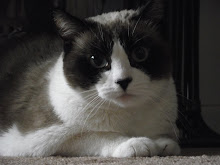"Where are you from?"
People ask this of me casually when they hear my accent or find out my last name is pronounced “leher” not “ledger”. I’m sure all they want to hear is the name of a country, but that’s the same as thinking that someone will know who I am merely because I’ve told them my name. Where I’m from is so much more than a place.
My childhood memories are a collage of music and food and giving. As a little girl, I understood that there were plenty of things we didn’t have because there wasn’t enough money; I just didn’t know we were poor! I lived in a house that Pato and his sons built by hand and that didn’t have running water or electricity. But since I knew the story all I felt was pride. I knew that my grandmother had been widowed when she was very young; she’d been left alone and penniless, with six little girls to raise. Somehow this woman who could barely write her name found a way to become a land owner; I knew that each piece of wood she used to build the house I grew up in came from trees that grew on her property.
I knew that each day my aunt Nina cooked more food than was necessary so that people who dropped by would never be turned away hungry. That my cousin took a plate of food each day, each meal, to the elderly man who lived down the street and who didn’t have any family left. And whenever visitors came, my aunt Maria went into the fields to gather for them whatever was in season: mango, avocado, limoncillo, cajuil, plantains, corn, beans, pineapple, guava, coffee, cacao, lemons, oranges, tamarindo, and whatever else she could lay her hands on or her guests had a predilection for.
In the U.S., it is customary to bring a gift when visiting someone; where I am from, it’s the opposite. Giving and service are not laudable acts, they are merely good manners. It is buena educacion, which has nothing to do with what books teach and everything to do with how you are raised to treat and respect others.
When I was thirteen, my mother and I had tickets to return to the U.S. via Puerto Plata (about six hours from my house) on the day of a general strike. As no public transportation would be available on the day of the strike we needed to go to Puerto Plata one day early, but not having any family there meant we would have no place to stay. No problem, the taxi driver she’d hired assured my mother: he had a cousin who lived near the airport. We arrived at this stranger’s house unannounced and were treated as honored guests that evening. I remember a lot of domino games, Presidente beer, and merengue that night—our visit was enough reason for a party. Our taxi driver had gone back to my little town that night and left it up to his cousin to figure out a way to get us safely to the airport the next day.
Two years ago, during my last visit, no one was available to pick me up from the airport in Santo Domingo. Times have changed and crime is running rampant, so my mother worried about how I’d get to the bus terminal from the airport without being mugged. When the plane landed in Santo Domingo, I asked a young man to direct me to a reputable taxi so I could begin my final journey home. When he found out I was traveling alone, he refused to let me take a taxi. His family was coming to pick him up and they would make sure I got on the right bus safely.
True to the promise he’d made on their behalf, his parents drove me to the bus terminal and waited to make sure I was able to purchase a ticket to Salcedo without any hassle. “If the last bus for the day has already gone, you must stay with us tonight. This city is not safe for a woman traveling alone,” my young hero’s mother emphatically stated. I have no doubt that I would have been welcome in their home if I’d been stranded in the city that night.
So, where am I from?
I’m from a people who never need to know my name as everyone from taxi drivers, to store clerks, to office receptionists calls me mami, corazon, mi amor, linda, muñeca, bebe, or any of many other terms of endearment. I belong to a people who color their lives with relationships and music (oh, and a LOT of alcohol!).
So, where am I from?
I’m from the Sosa’s and the Ureña’s who live in Palmarito, near Salcedo. You’ll have heard of them. Specially the Sosa’s—known for their bad temper and tender hearts.
I have now lived in the U.S. many more years than in the Dominican Republic and I consider myself an American. But where I’m from guides my most basic impulses. I don’t understand why I should wait until help is requested before I can offer it. I don’t see the point in checking my calendar or my wallet before deciding what my contribution should be. It makes no sense to me that the things I’ve been graced with aren’t meant for public use.
That’s what I'd like to say when people ask me where I’m from.





